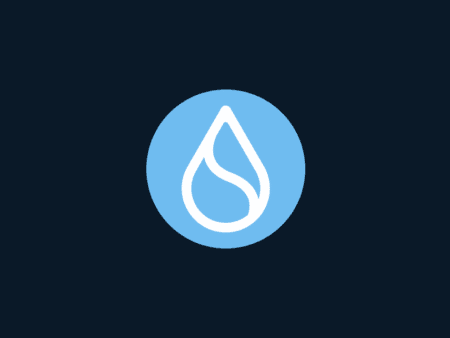⚡️ TL;DR – What Is a dApp in Crypto?
A dApp (short for decentralized application) is a blockchain-based app that runs without centralized servers. Powered by smart contracts, dApps allow users to interact directly with services like token swaps, games, NFT marketplaces, and voting platforms — all while maintaining transparency, user control, and global accessibility.
❓ dApp: What Is It and How Does It Work?
A dApp is just like any other app — except instead of running on private servers, it runs on a blockchain. That means no single company owns it, no central authority can shut it down, and users typically have more power over how it functions.
At its core, a dApp uses smart contracts — self-executing pieces of code stored on the blockchain — to carry out actions like sending tokens, recording votes, or updating ownership. This setup makes dApps transparent, secure, and censorship-resistant, unlike traditional apps hosted by centralized entities like Amazon Web Services or Google Cloud.
Whether you’re swapping tokens, minting NFTs, or playing blockchain-based games, if the action runs on-chain through a smart contract, you’re using a dApp.
How Does a dApp Work?
Though dApps may look like normal websites or mobile apps on the outside, their inner workings are completely decentralized:
- The backend logic is handled by smart contracts deployed on blockchains like Ethereum, Solana, BNB Chain, or Avalanche.
- The frontend is often hosted just like a normal site, but it connects directly to the blockchain using a crypto wallet like MetaMask, Phantom, or Keplr.
- All data — from token balances to governance votes — is stored on-chain, meaning anyone can verify the app’s history and activity.
This architecture allows users to retain ownership over their assets and data while interacting with trustless protocols.
Why Are dApps Important?
dApps are transforming the way we think about software, digital ownership, and finance. Here’s what sets them apart:
- Decentralized Governance – Many dApps are governed by DAOs, meaning token holders vote on proposals and changes.
- Transparency – All interactions are public and traceable, reducing the risk of fraud or manipulation.
- Security – No central server to hack = fewer attack vectors.
- Censorship Resistance – Once deployed, most dApps can’t be easily taken down or altered.
- Global Participation – Anyone with a wallet and internet can use a dApp — no sign-ups, no banks, no borders.
Whether you’re managing your assets or playing a blockchain game, dApps put you in control.
dApps Across Different Blockchains
Decentralized applications (dApps) are not tied to a single blockchain — they exist across many ecosystems, each bringing its own strengths to the table. While Solana is celebrated for its blazing speed and low fees, it’s just one part of a much larger, evolving Web3 landscape.
The Ethereum network remains the largest and most mature hub for dApp development, powering iconic platforms like Uniswap for token swapping and OpenSea for NFTs. Its robust developer community and established smart contract standards make it a foundational layer for decentralized finance and Web3 innovation.
Solana, by contrast, offers near-instant transaction finality and minimal costs, making it an attractive option for dApps in high-throughput environments such as NFT marketplaces, DeFi trading platforms, and blockchain gaming.
On the other hand, BNB Chain has grown rapidly thanks to its ease of use, lower fees, and a vibrant ecosystem of meme coins, gaming apps, and DeFi tools. It caters especially well to users looking for an Ethereum-compatible chain with faster and cheaper execution.
Polygon enhances Ethereum’s scalability by providing a Layer 2-compatible environment with significantly reduced gas costs, making it a go-to for dApps focused on user growth and affordability without compromising on EVM compatibility.
Meanwhile, Arbitrum and Optimism — two of Ethereum’s most successful Layer 2 solutions — enable Ethereum-native dApps to scale by offloading computation and reducing congestion, all while retaining Ethereum’s core security guarantees.
Across the ecosystem, many dApps are becoming multi-chain, giving users the freedom to interact across networks based on cost, speed, and feature set. Whether you’re swapping tokens, minting NFTs, or participating in DAOs, chances are you’ll find dApps tailored to your needs — no matter which blockchain you prefer.
Examples of What You Can Do With a dApp
- Swap Tokens: Use decentralized exchanges (DEXs) like Uniswap, Orca, or Jupiter to trade without middlemen.
- Mint or Trade NFTs: Use dApps like Magic Eden or OpenSea to collect and trade digital art and collectibles.
- Participate in DAO Voting: Join community decisions through governance platforms.
- Play-to-Earn Gaming: Interact with blockchain-based games where your in-game items and tokens are truly yours.
- Lend and Borrow: Use DeFi dApps like Aave or Solend to earn interest or take loans on your crypto.
🔑 Key Takeaways
- A dApp is a decentralized application that runs on a blockchain via smart contracts — no centralized server needed.
- Users interact with dApps using crypto wallets instead of traditional logins.
- dApps offer global, permissionless access to tools like trading, gaming, NFTs, and finance.
- They exist across many blockchains including Ethereum, Solana, BNB Chain, and more.
- Transparency, self-custody, and user governance make dApps a cornerstone of the Web3 movement.
❓ Frequently Asked Questions About dApps
A dApp is a decentralized application that uses smart contracts and runs on a blockchain, allowing users to interact directly with protocols like DeFi, NFTs, or games — without central control.
You need a crypto wallet like MetaMask, Phantom, or Keplr. Simply connect the wallet to the dApp, and you’re ready to interact — no email or account needed.
Many dApps are safe if built on audited code and widely used. However, scams and exploits exist, so only use trusted platforms and always verify URLs.
Solana offers ultra-fast speeds and very low fees, making it ideal for apps with high transaction volume like trading platforms, games, and NFT marketplaces.
Yes — most blockchains require you to hold their native token (e.g., ETH for Ethereum, SOL for Solana) to pay small fees for transactions.
Absolutely. Many wallets like Phantom, Trust Wallet, or Coinbase Wallet offer built-in dApp browsers so you can use Web3 apps directly from your phone.












